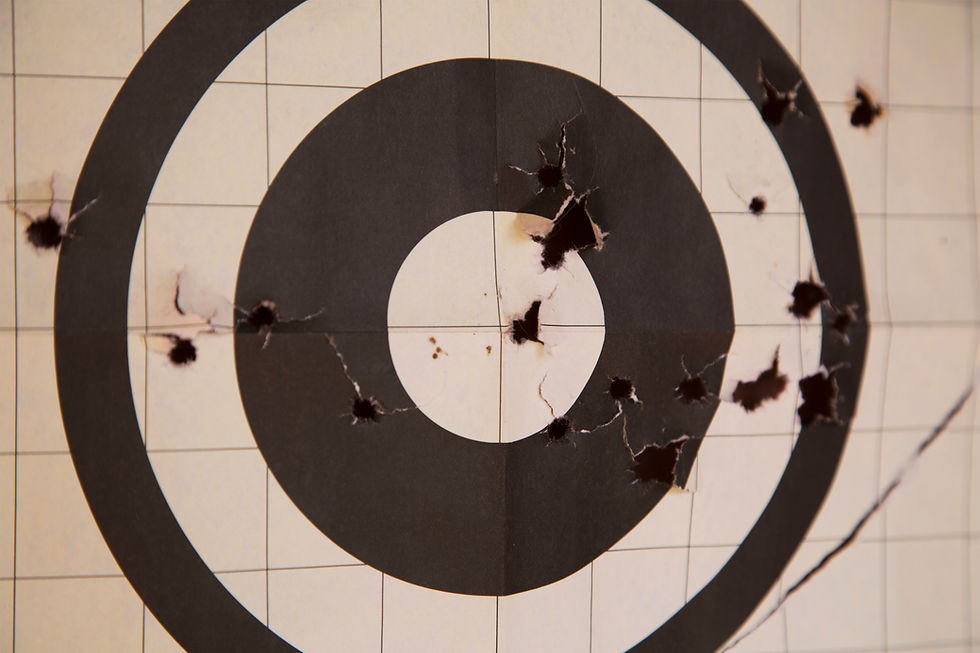12 Steps for Lost Traders. Mostly Day Traders
- Paul Nawrocki
- Sep 24, 2025
- 3 min read

I’m writing about this so that you know there are remedies for a discouraged mind—and that they really exist.
As you might guess, day trading is a psychological battlefield. The stakes are high and very real. While most traders chase profits using indicators and charts, very few recognize the true opponent—their own mind.
Dr. Alexander Elder, a well-known trader and psychiatrist, emphasizes that mastering trading psychology is the key to long-term success. Inspired by the famous 12 steps of Alcoholics Anonymous, below is an adaptation for traders—a roadmap to emotional discipline, crafted in the spirit of Elder’s philosophy.
1. We admitted we were powerless over the market—that our trading had become unmanageable.
“The market is bigger than any ego. The sooner you accept this, the longer you will survive.” – A. Elder
Every trader eventually falls victim to emotions: revenge trading, panic, overconfidence. These destroy both capital and peace of mind. The first step is admitting you cannot control the market—you can only control your reaction.
2. We came to believe that a power greater than ourselves could restore us to balance in day trading.
That “higher power” might be a tested strategy, a trading plan, or a mentor. Elder teaches that structure and discipline provide stability in the chaos of the market. Without rules, impulses take over.
3. We decided to turn our will and our lives over to that higher power.
This marks the shift from gambling to conscious trading. Elder calls it the transition from emotional action to strategic execution. From now on, it’s your system that leads you—not your moods.
4. We made a searching and fearless psychological inventory of ourselves.
“A trader’s journal is a mirror—it never lies.” – A. Elder
This step is deep reflection on how you react to losses, gains, stress, greed, fear. Keeping a record of every trade helps uncover emotional patterns that sabotage consistency.
5. We admitted to ourselves and to another human being the exact nature of our wrongs.
A mentor, a support group, or even voicing your trade analysis out loud can expose blind spots. Elder encourages accountability, not secrecy: “The more you hide mistakes, the greater power they have over you.”
6. We were entirely ready to let go of these defects of character.
This means confronting greed, fear, impatience, and revenge—enemies of rational trading. Elder stresses that personality bleeds into results, and self-awareness is the antidote.
7. We humbly asked for help to remove our shortcomings.
Seeking support isn’t weakness, it’s wisdom. Whether through Elder’s books, meditation, or coaching, this step is about accepting the need for constant inner work.
8. We made a list of all the people we had harmed—including ourselves—and became willing to make amends.
Trading doesn’t just wound your account. It can weaken self-esteem, relationships, and mental health. Elder advises healing the psyche: “Before you repair your equity curve, repair your mind.”
9. We made direct amends wherever possible, except when to do so would cause harm.
Amends may mean fixing habits, discipline, finances, credibility. You cannot undo the past, but you can rebuild with responsibility.
10. We continued personal inventory and when we were wrong, promptly admitted it.
“After every session, don’t ask how much you made—ask what you did right and what you did wrong.” – A. Elder
Daily reviews and journaling track progress and setbacks. An honest feedback loop is key.
11. Through reflection, meditation, and planning we sought to deepen contact with that higher power.
For Elder, this means clarity of mind and preparation: read, plan, analyze—don’t act impulsively. Begin your trading day with intention, not adrenaline.
12. Having had a psychological awakening as the result of these steps, we carried this message to other traders and practiced these principles in all our affairs.
Helping others strengthens your own discipline. Mentoring, sharing experiences, honesty—these build a character that extends beyond the screen.
“A good trader is first a good human being.” – A. Elder
Trading as Inner Work
Alexander Elder’s philosophy connects markets with psychology. These 12 steps are more than a guide—they’re a survival kit for the emotionally mature trader. If you feel stuck in a spiral of emotional trading, remember: you are not alone, and healing begins with awareness.
Ready to make your own inventory?
Start today:
Keep a trading journal,
Reflect on your emotional responses,
Find a mentor or trading partner,
Read Trading for a Living,
Accept that trading is 80% psychology, 20% execution.







Comments